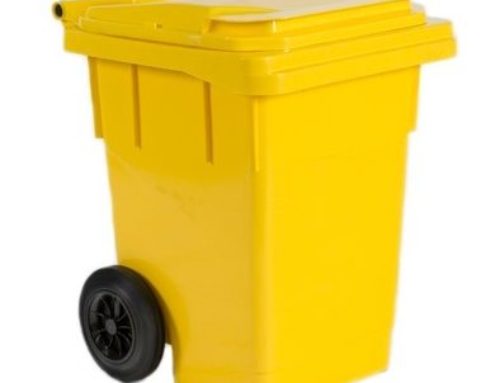[fusion_builder_container hundred_percent=”no” equal_height_columns=”no” hide_on_mobile=”small-visibility,medium-visibility,large-visibility” background_position=”center center” background_repeat=”no-repeat” fade=”no” background_parallax=”none” enable_mobile=”no” parallax_speed=”0.3″ video_aspect_ratio=”16:9″ video_loop=”yes” video_mute=”yes” border_style=”solid” padding_top=”20px” padding_bottom=”20px”][fusion_builder_row][fusion_builder_column type=”1_2″ layout=”1_2″ spacing=”” center_content=”no” hover_type=”none” link=”” min_height=”” hide_on_mobile=”small-visibility,medium-visibility,large-visibility” class=”” id=”” background_color=”” background_image=”” background_position=”left top” background_repeat=”no-repeat” border_size=”0″ border_color=”” border_style=”solid” border_position=”all” padding_top=”” padding_right=”” padding_bottom=”” padding_left=”” margin_top=”” margin_bottom=”” animation_type=”” animation_direction=”left” animation_speed=”0.3″ animation_offset=”” last=”no”][fusion_imageframe image_id=”20118″ style_type=”none” hover_type=”none” bordersize=”6″ align=”none” lightbox=”no” linktarget=”_self” hide_on_mobile=”small-visibility,medium-visibility,large-visibility” animation_direction=”left” animation_speed=”0.3″]https://justwheeliebins.net.au/wp-content/uploads/2017/03/Rubbish-Landfill-Scale-300×200.jpg[/fusion_imageframe][/fusion_builder_column][fusion_builder_column type=”1_2″ layout=”1_2″ spacing=”” center_content=”no” hover_type=”none” link=”” min_height=”” hide_on_mobile=”small-visibility,medium-visibility,large-visibility” class=”” id=”” background_color=”” background_image=”” background_position=”left top” background_repeat=”no-repeat” border_size=”0″ border_color=”” border_style=”solid” border_position=”all” padding_top=”” padding_right=”” padding_bottom=”” padding_left=”” margin_top=”” margin_bottom=”” animation_type=”” animation_direction=”left” animation_speed=”0.3″ animation_offset=”” last=”no”][fusion_text]
Tackling Household Waste
Waste, Rubbish, Garbage, Junk, call it what you will. There are many terms used for the unwanted and mostly unwanted waste that is deemed useless. Often this waste is not as useless as it is perceived.
For all the effort taken to produce much of the goods discarded as rubbish, their usefulness is limited by the perceived value associated to it, not the actual value to planet as a whole. Still millions of tons of waste is dumped in landfills around the world every year.
Ultimately the need to reduce the amount of rubbish that is placed into landfill is very important for the continued viability of our planet and our way of life. The most simplistic way forward is to reduce the waste we produce, reuse what we can and eliminate the production of what cannot be reused.
This is a great ultimate goal, getting to such a utopian ideal will take a lot of education and innovation. Some of the tools required to assist reducing waste is by the separation of types of waste. Rubbish wheelie bins become an effective way for various wastes to be separated and transported to appropriate disposal points.
Let’s start with the breakdown of the types of waste being dumped.
Organic Waste
Most kitchen scraps can be regarded as organic waste. It is waste as it is not useful in the preparation of meals. That in itself does not make it useless.
Organic waste often has a strong organic reserve of beneficial nutrients and can often be reused as a beneficial additive for soils as a fertiliser. Returning such resources to the earth can be beneficial.
However under the wrong conditions like deep within landfill, the breakdown of such organic waste can produce a harmful greenhouse gas in methane. If left out in the open it has the potential to bring pests and vermin.
Large scale disposal poses many issues in heavily populated areas, an issue that is becoming a big problem for developed and increasingly developing nations around the world. One option is to develop responsible micro managed biological waste centres in populated areas. One example could be worm farms associated with community gardens.
Organic Materials can also be natural products produced to be useful for us our modern society. Much of this can be reused. Organic products such as paper and cardboard would take little reprocessing to again be beneficial.
The recycling of such products is a simple thing to do, and often encouraged by waste management organisations and governments alike. The value of such a product is in the reduction of landfill and the cost savings for the manufacturer.
Recycling Waste
Recycling in general is an obvious way of reducing waste. Unfortunately the reuse of processed materials can often only be done as a small percentage of the process when added to the raw materials.
Plastics in packaging, one of the most common and abundant of produced products degrade their aesthetics when reprocessed. Community expectations of packaging as well as processing technology will need to change to reduce the amount of plastics being produced from raw materials. Ideally this is a product we should aim to remove from production as it is one of the least ecological beneficial products we produce. Reducing the need for raw material production by reusing is a good start.
The Remaining Waste.
It can be impractical to separate all wastes and there will always be a component of household waste that cannot be reused. Such products require a method of disposal that will unleash the energy within them. Potentially unlocking that potential energy to produce usable power via Thermal, Biological or Chemical means.
These technologies though in their infancy, will revolutionise the way we see waste into the future. Potentially creating a way for humanity to continue as a thriving civilised community as well as returning benefits to the earth assisting Mother Nature to provide us a healthy and biodiverse home on which to live.
Companies like Just Wheelie Bins provide rubbish wheelie bins that can assist in the separation and temporary storage of various recycled waste. Without these tools and public education there will be no positive change on the horizon for our planet.
[/fusion_text][/fusion_builder_column][/fusion_builder_row][/fusion_builder_container][fusion_builder_container hundred_percent=”no” equal_height_columns=”no” menu_anchor=”” hide_on_mobile=”small-visibility,medium-visibility,large-visibility” class=”” id=”” background_color=”” background_image=”” background_position=”center center” background_repeat=”no-repeat” fade=”no” background_parallax=”none” parallax_speed=”0.3″ video_mp4=”” video_webm=”” video_ogv=”” video_url=”” video_aspect_ratio=”16:9″ video_loop=”yes” video_mute=”yes” overlay_color=”” video_preview_image=”” border_size=”” border_color=”” border_style=”solid” padding_top=”” padding_bottom=”” padding_left=”” padding_right=””][fusion_builder_row][fusion_builder_column type=”1_1″ layout=”1_1″ background_position=”left top” background_color=”” border_size=”” border_color=”” border_style=”solid” border_position=”all” spacing=”yes” background_image=”” background_repeat=”no-repeat” padding_top=”” padding_right=”” padding_bottom=”” padding_left=”” margin_top=”0px” margin_bottom=”0px” class=”” id=”” animation_type=”” animation_speed=”0.3″ animation_direction=”left” hide_on_mobile=”small-visibility,medium-visibility,large-visibility” center_content=”no” last=”no” min_height=”” hover_type=”none” link=””][fusion_text][/fusion_text][/fusion_builder_column][/fusion_builder_row][/fusion_builder_container]



Leave A Comment